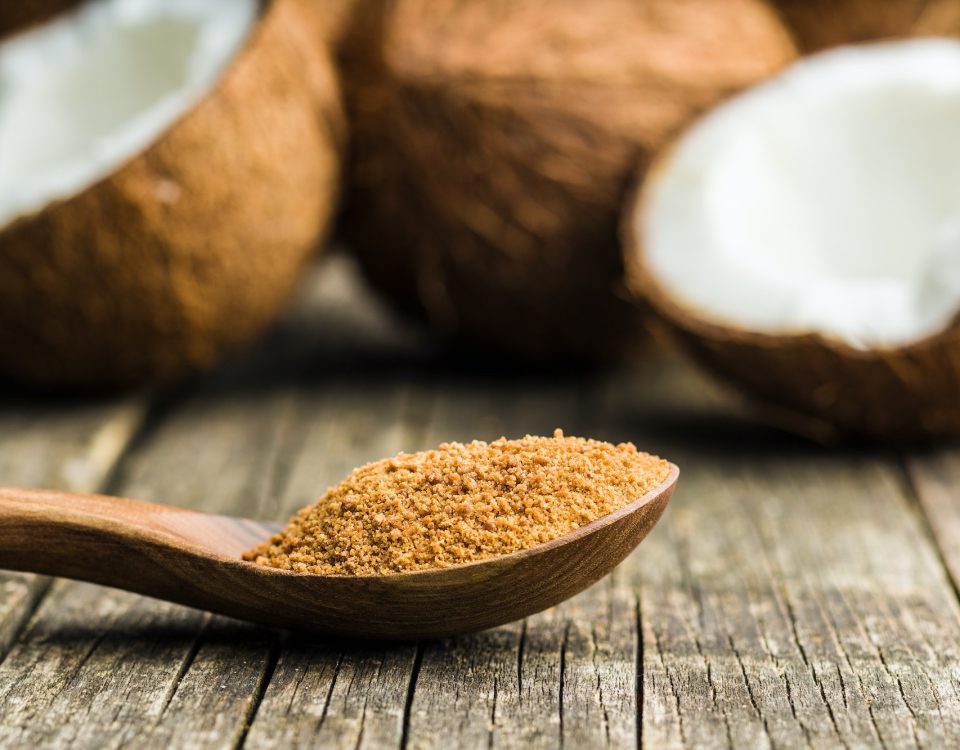Scientific Benefits of Coconut Oil for our Skin

Weight Loss with Coconut Oil
21 July 2023
Coconut Oil: Tracing the History and Cultural Significance of the Tropics’ ‘Tree of Life’
29 July 2023Scientific Benefits of Coconut Oil for our Skin
Coconut oil has long been hailed in traditional medicine as a go-to natural remedy for a variety of skin conditions. Today, we have a wealth of scientific evidence supporting the benefits of coconut oil for skin health. From its hydrating properties to its antimicrobial effects, let’s delve into how coconut oil can enhance your skincare routine.
Moisturizing and Hydrating Properties
One of the standout benefits of coconut oil for skin is its superb moisturizing and hydrating properties. Brimming with fatty acids vital for skin health, coconut oil works wonders for dry or sensitive skin. It’s not just anecdotal evidence that supports this claim; science backs it up too.
A study published in the Dermatitis journal highlighted coconut oil’s effectiveness in improving skin hydration and reducing water loss in mild to moderate xerosis (dry skin). If you struggle with dry skin, incorporating coconut oil into your skincare regimen can help restore your skin’s natural moisture balance.
Anti-Inflammatory Properties
Those searching for a natural solution to inflammatory skin conditions such as eczema and psoriasis may find relief in the anti-inflammatory properties of coconut oil. Research showcased in Dermatitis journal noted how coconut oil effectively reduced inflammation and improved skin barriers in patients suffering from atopic dermatitis. So, whether it’s coconut oil for eczema or psoriasis, this natural remedy might be worth trying.
Antimicrobial Properties
Coconut oil isn’t just about moisturizing and soothing inflamed skin; it also packs a powerful antimicrobial punch. The antimicrobial properties of coconut oil can aid in fighting off skin infections caused by harmful bacteria and viruses. According to a study in the Journal of Medicinal Food, coconut oil proved effective against various bacteria, including Staphylococcus aureus and Escherichia coli. So, for a healthier skin microbiome, don’t overlook coconut oil.
Anti-Aging Properties
Are you seeking a natural way to maintain youthful-looking skin? Look no further than the anti-aging benefits of coconut oil. The fatty acids in coconut oil not only keep your skin hydrated but also help reduce the appearance of fine lines and wrinkles while improving skin elasticity. A study in the journal Skin Pharmacology and Physiology found that creams containing coconut oil improved skin hydration and lessened the appearance of fine lines and wrinkles.
Sun Protection Properties
Coconut oil has been shown to have some sun protection properties, which can be beneficial for people looking to protect their skin from the harmful effects of the sun. While coconut oil should not be used as a substitute for sunscreen, it may help to provide some additional protection against UV radiation. A study published in the journal Pharmacognosy Research in 2010 found that coconut oil had a sun protection factor (SPF) of 8, which is lower than most commercial sunscreens, but still offers natural protection against UV radiation.
In conclusion, coconut oil has a range of potential benefits for skin health, including moisturizing and hydrating properties, anti-inflammatory properties, antimicrobial properties, anti-aging properties, and sun protection properties. While more research is needed to fully understand the potential benefits of coconut oil for skin care, these studies suggest that it is a beneficial natural remedy for a range of skin conditions.
References:
- Agero, A.L. & Verallo-Rowell, V.M. (2004). A randomized double-blind controlled trial comparing extra virgin coconut oil with mineral oil as a moisturizer for mild to moderate xerosis. Dermatitis, 15(3), 109-116.
- Verallo-Rowell, V.M. et al. (2008). Novel antibacterial and emollient effects of coconut and virgin olive oils in adult atopic dermatitis. Dermatitis, 19(6), 308-315.
- Ogbolu, D.O. et al. (2007). In vitro antimicrobial properties of coconut oil on Candida species in Ibadan, Nigeria. Journal of Medicinal Food, 10(2), 384-387.
- Lin, T.K. et al. (2017). Anti-inflammatory and skin barrier repair effects of topical application of some plant oils. International Journal of Molecular Sciences, 19(1), 70.
- Nevin, K.G. & Rajamohan, T. (2010). Influence of virgin coconut oil on blood coagulation factors, lipid levels and LDL oxidation in cholesterol fed Sprague-Dawley rats. European Journal of Nutrition, 49(8), 573-579.
- Evangelista, M.T. et al. (2014). The effect of topical virgin coconut oil on SCORAD index, transepidermal water loss, and skin capacitance in mild to moderate pediatric atopic dermatitis: a randomized, double-blind, clinical trial. International Journal of Dermatology, 53(1), 100-108.
- Boucetta, K.Q. et al. (2019). The effects of topical application of phytonutrient-based formulations on the aging skin: a randomized, double-blind, placebo-controlled study. Journal of Drugs in Dermatology, 18(5), 477-484.
- Lin, T.K. et al. (2017). Anti-inflammatory and skin barrier repair effects of topical application of some plant oils. International Journal of Molecular Sciences, 19(1), 70.
- Osman, M.A. et al. (2015). Sunscreen potential of coconut oil. Pharmacognosy Research, 7(Suppl 1), S108-S112.
- Simon, D. et al. (2017). Immune-regulatory effects of coconut oil and its medium-chain triglycerides on human peripheral blood mononuclear cells. Journal of Immunology Research, 2017, 1-13.
- Paul, C. et al. (2020). Comparative study of virgin coconut oil and coconut oil in preventing hair damage. Journal of Cosmetic Science, 71(1), 35-47.
- Maru, G.B. et al. (2021). Coconut oil: A review of potential applications. Hygeia: Journal for Drugs and Medicines, 13(1), 71-84.
- Ghani NAA, Channip AA, Chok Hwee Hwa P, Ja’afar F, Yasin HM, Usman A. Physicochemical properties, antioxidant capacities, and metal contents of virgin coconut oil produced by wet and dry processes. Food Sci Nutr. 2018 May 23;6(5):1298-1306. doi: 10.1002/fsn3.671. PMID: 30065831; PMCID: PMC6060898.
- Lee EJ, Oh H, Kang BG, Kang MK, Kim DY, Kim YH, Lee JY, Ji JG, Lim SS, Kang YH. Lipid-Lowering Effects of Medium-Chain Triglyceride-Enriched Coconut Oil in Combination with Licorice Extracts in Experimental Hyperlipidemic Mice. J Agric Food Chem. 2018 Oct 10;66(40):10447-10457. doi: 10.1021/acs.jafc.8b04080. Epub 2018 Oct 2. PMID: 30244576.




